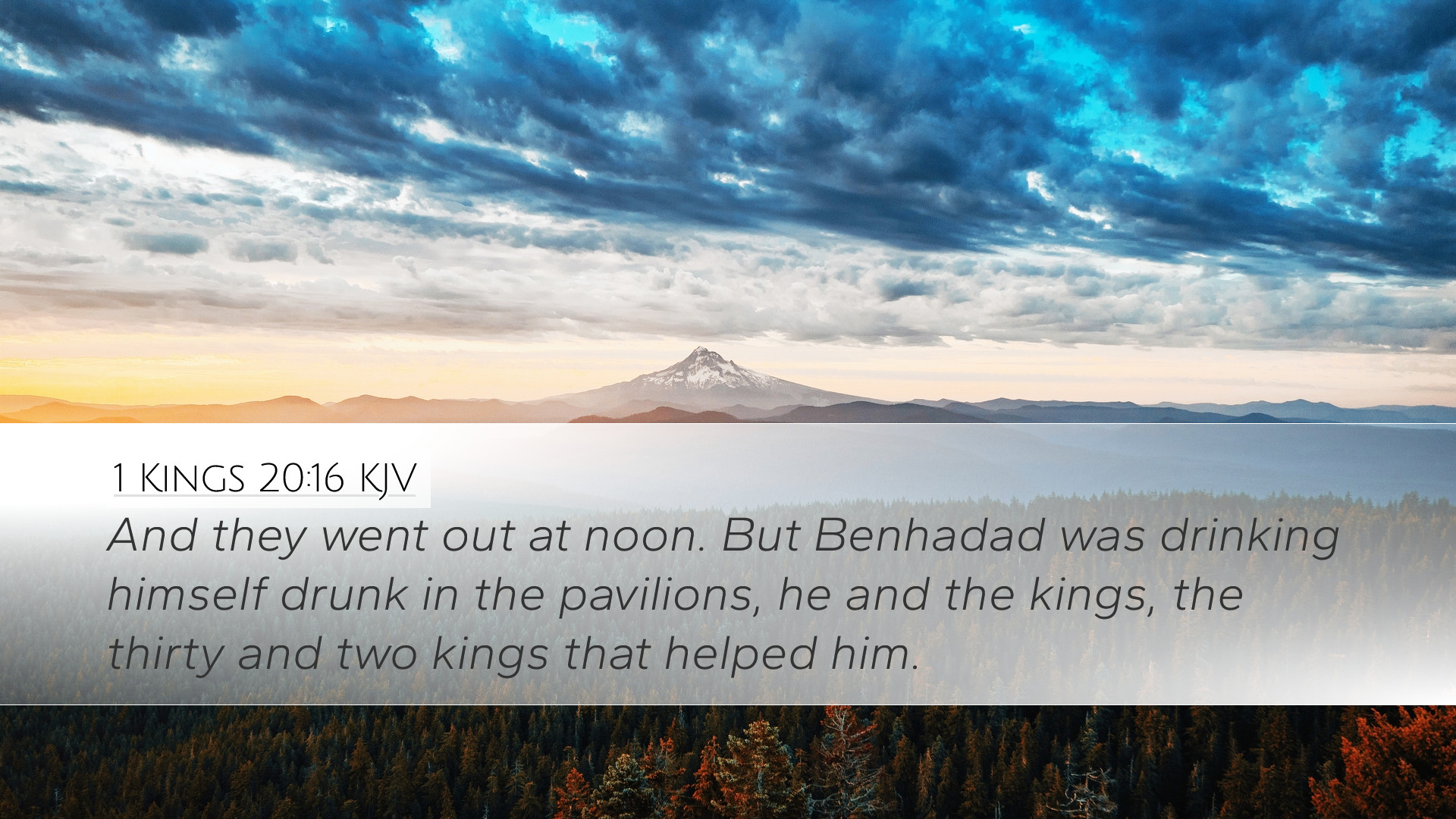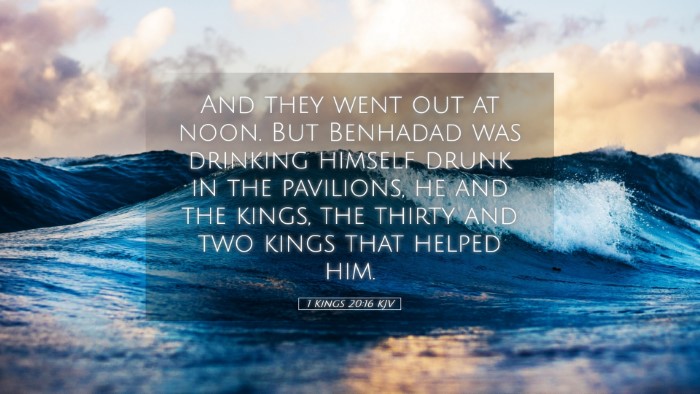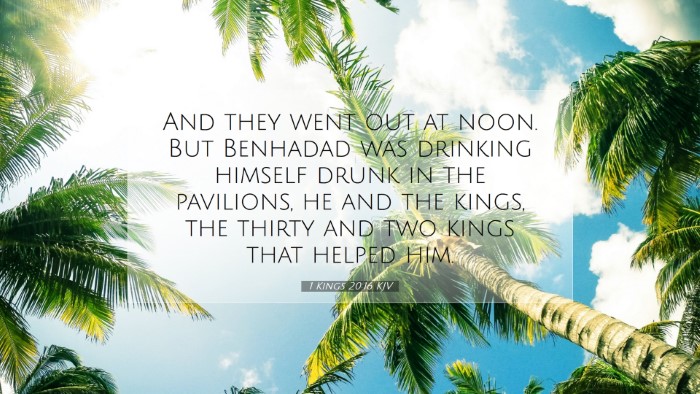Bible Commentary on 1 Kings 20:16
Verse: "So they went out at noon. Meanwhile, Ben-Hadad and the thirty-two kings allied with him were drinking in their tents." (1 Kings 20:16, NIV)
Contextual Overview
This verse falls within the larger narrative of King Ahab's conflict with Ben-Hadad, the king of Aram, highlighting themes of military strategy, divine intervention, and the consequences of pride and miscalculation. This battle represents a significant event in Ahab's reign, illustrating the tension between Israel and its neighboring nations.
Commentary Insights
1. Historical Setting
Matthew Henry provides insight into the historical context, noting that King Ahab of Israel was faced with the threat of an invasion by Ben-Hadad and a coalition of allied kings. This situation underscores the geopolitical struggles faced by Israel during this time, particularly the pressures of surrounding kingdoms vying for dominance.
Albert Barnes emphasizes that Ben-Hadad's overconfidence—evident from his choice to drink and celebrate while his forces prepared for battle—reveals a theme of hubris. Such behavior often leads to disastrous decisions, as it blinds leaders to the realities of their circumstances.
2. The Drinking of Kings
The mention of Ben-Hadad and the allied kings drinking in their tents serves as a powerful symbol. Adam Clarke interprets this act as indicative of their false sense of security and relaxation in the face of impending conflict. Instead of preparing for battle, they indulge in frivolity, a reflection of their misplaced confidence in their military strength.
3. The Unity of Opposition
This verse captures a moment of unity among the opposing kings under Ben-Hadad's leadership. Matthew Henry notes that this coalition, despite its collective strength, was vulnerable to the sovereign power of God. This serves as a reminder that human alliances, while seemingly formidable, can be rendered powerless against divine will.
4. The Timing of Warfare
Albert Barnes stresses the significance of the noon hour in this narrative. At this time, the heat is oppressive, making it an unusual choice for a military encounter. This reflects Ahab's strategic advantage over his enemies, who are caught off guard and relaxed, heralding God's providence and timing in the unfolding events.
5. Implications for Leadership
The behaviors of both Ahab and Ben-Hadad offer insights into leadership dynamics. Adam Clarke illustrates how Ahab's faithfulness to God contrasts with Ben-Hadad's arrogance. Pastors and leaders today can learn the dangers of complacency and the importance of vigilance in spiritual matters, as exemplified by the contrasting responses to the impending conflict.
6. Spiritual Lessons
- Divine Sovereignty: The chapter illustrates that God is in control even amidst human machinations. God's ability to deliver His people, despite their unworthiness, is a recurring theme throughout the Scriptures.
- Preparedness: Ahab's army is depicted as being active and ready, while Ben-Hadad's forces indulge in revelry. This serves as a metaphor for spiritual preparedness; believers are called to be vigilant and sober-minded as they navigate life's challenges.
- Consequences of Pride: Ben-Hadad's unchecked pride ultimately leads to his downfall. Leaders are urged to remain humble, recognizing that true strength is found in dependence on God rather than personal prowess.
Conclusion
1 Kings 20:16 serves as a poignant reminder of the complexities of leadership, the dangers of complacency, and the overarching control of God in historical narratives. As pastors, students, and scholars study this passage, they are invited to reflect on the nature of faith, the importance of readiness in spiritual warfare, and the sober realization that human alliances and strength cannot substitute for reliance on God’s power.


